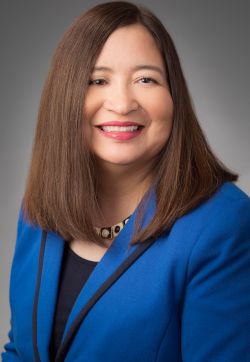Innovative YSU professor recognized by American Accounting Association
Molly Ryan Kowaleski, PR & Engagement Manager
Marsha Huber, CPA, Ph.D., CGMA, recently received the J. Michael and Mary Anne Cook/Deloitte Foundation Prize for teaching excellence in undergraduate accounting programs through the American Accounting Association.
Huber, an OSCPA member and professor of accounting at Youngstown State University, has won countless awards, including Beta Alpha Psi’s Professor of the Year, the KPMG award for Mentoring, the George Krull/Grant Thornton Innovation in Education Award and the Bea Sanders AICPA/AAA Innovation in Education Award. But, she says the Cook award was one of the most significant to her.
 “I've received other … awards but this is the award,” she said. “I never thought I would qualify, honestly.
“I've received other … awards but this is the award,” she said. “I never thought I would qualify, honestly.
“Personally, it meant a lot to me. The way I approach things isn’t necessarily traditional, and sometimes I feel like people don’t appreciate that, so it’s neat to get a national award for taking risks. And, having my peers and other respected people in the field say, ‘Hey, we support you and we like what you’re bringing to accounting education’ was a confidence booster.”
Huber did not win the first time when OSCPA’s past Executive Board Chair Sandy Richtermeyer nominated her three years ago. But others nominated her each year for the past three years, and this year, previous winner Susan M. Curtis nominated Huber.
In addition to the work that earned her this top prize, Huber spent time in 2014 at Harvard University as a visiting faculty scholar, during which she researched how the brain works in learning. She was introduced to Design Thinking at Harvard and from that point began pursuing a more innovative approach to the material she teaches. Last year, she began studying creative problem solving at SUNY Buffalo State.
“I see my future role as bringing this innovative mindset to accounting. What can I do that’s meaningful and what can I do that’s going to change the way we teach accounting?” she said. “On one hand, I think we do a great job. Our students are well prepared; they pass the CPA exam and they have those hard skills.
“When it comes to soft skills, I think we’ve improved a lot, but we could do better in this creative space to help our students become the thought leaders of tomorrow.”
Huber said her teaching philosophy changes with every class. She is keen on feedback and can be extremely flexible when she hears her students aren’t getting what they want out of her courses. For example, about three years ago, the students in one of her night classes told her she was dolling out too much busywork and that they didn’t have time to complete her “weird projects.”
“So, I came up with this flex class with different requirements,” she explained. “If all you want to do is sit at home and study and read, that’s fine, but if you want to do interviews and reflection papers or extra tax returns, that’s also in there. About 80% of the people still do the extra work happily. And the people who don’t have time or don’t want to do it, don’t do it. They study, they read the book, they take the test.
“My goal is for people to learn the material and enjoy learning it. I want to see students come out with fire in their wings and take off!”
She said she hopes to advance accounting in ways that haven’t even been considered, yet. She noted that some larger firms are starting to value new graduates with an out-of-the-box thinking style.
“There’s research that says the number-one skill desired by employers is creativity, so I don’t think accountants should be excluded from this experience,” she said. “Given our strengths and our analytical skill sets, I believe we bring a lot to the table.”